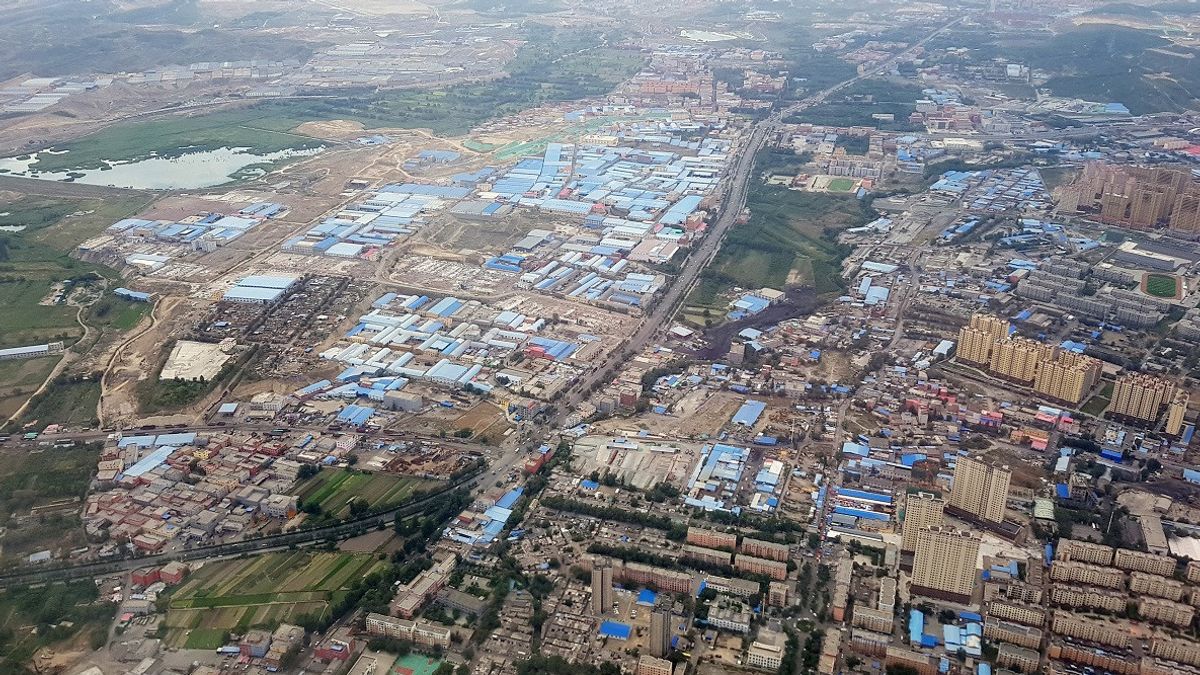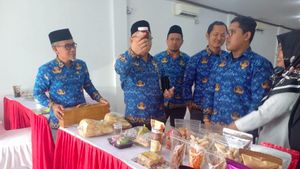JAKARTA - Human rights organization Amnesty International says China is committing crimes against humanity in Xinjiang, a northwestern region that is home to the Uyghurs and other Muslim minorities.
In a report published on Thursday, Amnesty International called on the United Nations to investigate and said China had subjected Uighurs, Kazakhs and other Muslims to mass detention, surveillance and torture.
Amnesty International Secretary General Agnès Callamard accused Chinese authorities of creating "a dystopian hellish scene on a shocking scale".
"This should shock the conscience of mankind, large numbers of people have been subjected to brainwashing, torture and other degrading treatment in internment camps. While millions more live in fear amid a vast surveillance apparatus," Callamard said. June 11th.
Not only that, Callamard also said that UN Secretary General Antonio Guterres had failed to act according to his mandate on this issue.

"Mr Guterres 'has not denounced the situation', he has not called for an international investigation. It is his duty to protect the values on which the United Nations was founded, and certainly not to remain silent in the face of crimes against humanity," he said.
In a 160-page report based on interviews with 55 former detainees, Amnesty said there was evidence that the Chinese state had committed at least crimes against humanity, such as imprisonment or other severe deprivation of physical liberty in violation of basic rules of international law, torture and ill-treatment."
The report follows a series of similar findings by Human Rights Watch, which in its April report held the Chinese government responsible for crimes against humanity.
China has been accused by several Western countries and rights groups of committing genocide against the Turkic ethnic group in Xinjiang, although there are disputes over whether the country's actions constitute genocide.
Amnesty's report author Jonathan Loeb said his organization's research had not uncovered all the evidence for the crimes of genocide that had taken place, but had only scratched the surface.
China routinely denies all allegations of human rights abuses in Xinjiang.

Experts generally agree that China has detained as many as one million Uighurs and other Muslims, as well as imprisoned hundreds of thousands more in its crackdown in Xinjiang that began in 2017.
There are widespread reports of physical and psychological torture in prisons and detention camps in the region. Not only that, China is also accused of using forced sterilization, abortion and displacement to reduce birth rates and population density, targeting religious leaders to violate religious and cultural traditions.
Beijing has always denied this allegation, saying its camps in Xinjiang are a voluntary vocational and deradicalization program to fight terrorism in the region.
In its report, Amnesty said counter-terrorism could not reasonably explain the mass detentions. The actions of the Chinese Government demonstrate a clear intention to collectively target sections of the Xinjiang population based on religion and ethnicity, using severe violence and intimidation to eradicate Islamic religious beliefs, as well as the ethno-cultural practices of Turkish Muslims."
The organization says it believes those taken to a network of camps in Xinjiang "are subjected to a relentless campaign of indoctrination and physical and psychological torture".
The torture methods, according to Amnesty's report, included beatings, electric shocks, stress positions, unlawful use of restraints (including being confined to a tiger chair), sleep deprivation, wall hanging, subject to extreme cold and solitary confinement.

"The tiger chair, the whereabouts of which has been reported elsewhere, is said to be a steel chair with iron legs and handcuffs designed to hold the body in place. Several former detainees told Amnesty they were forced to watch other people locked motionless in tiger chairs for hours on end. hours or even days.
Amnesty also said the camp system in Xinjiang appeared to operate outside the purview of China's criminal justice system or other known domestic laws, and there was evidence detainees had been transferred from camps to prisons.
Although many findings have been previously reported, Amnesty's investigation is likely to add to international pressure on China for its actions in Xinjiang.
The US State Department previously described it as genocide, with the Parliaments of Britain, Canada, the Netherlands and Lithuania having passed resolutions making the same declaration.
In March, the European Union, US, UK and Canada imposed sanctions on Chinese officials for alleged violations. China responded by imposing retaliatory sanctions on lawmakers, researchers and institutions.
The possibility of China being investigated by international legal bodies is complicated by the fact that China is not a signatory to the International Criminal Court (ICC), placing it outside the court's jurisdiction. Has veto power over cases taken by the International.
To note, the ICC court of law announced they would not proceed with the case in Xinjian last December. Meanwhile, a series of independent hearings were held in London last week, presided over by prominent British lawyer Sir Geoffrey Nice, aimed at assessing allegations of genocide.
The English, Chinese, Japanese, Arabic, and French versions are automatically generated by the AI. So there may still be inaccuracies in translating, please always see Indonesian as our main language. (system supported by DigitalSiber.id)













